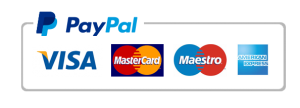LESSON PLAN
Name: Jaron Brown
Date of Observation:
Ages/Grades of Students:9th – 11th
# of Students in Class: 5
# of Students having IEPs/504: 1
Lesson Title: Importance of Education and the benefit after highschool
Unit Title: Career Preparation
1.
Context: Describe the Students for which this Lesson is Designed (1B):
Identify your students’ backgrounds, special needs, interests, and language proficiencies.
Use student initials for specific information about students in terms of learning strategies and behavior strategies. Give examples of what you know about students’ interests, outside activities, etc., which could be incorporated into the lesson plan. Also, be specific about student skills and knowledge.
This course has 5 students. All males. Grades are 9th – 2, 10th -2, and 11th – 1
There is 1 student with a 504, 1 student that is EL: Spanish
A description of each student and their interests is as follows:
TA – Highly active and enjoys sports and athletics.
JB – Enjoys listening to music and loves the chance to have music usage in class.
BD – Participates in class activities and discussions and enjoys watching movies.
NP – Enjoys hands-on learning activities and likes working on cars.
AM – Prefers to work along and has a desire to watch movies.
During class the following rewards are used: free time, movie in class, take them to the gym.
The learning strategies that are typically incorporated during class: All lessons are computerized and are used to allow students to do credit recovery, lessons are broken down in small chunks and small segments.
2.
Lesson Learning Targets/Objectives (1A) (1C)
a. Previous lesson’s learning targets/objectives (Connect each target/objective to the appropriate state curriculum/content area standards.)
b. Current lesson’s learning targets/objectives (Connect each target/objective to the appropriate state curriculum/content area standards.)
c. Next lesson’s learning targets/objectives (Connect each target/objective to the appropriate state curriculum/content area standards.)
3.Students’ Baseline Knowledge and Skills (1B) (1F)
Describe and include the pre-assessment(s) used to establish students’ baseline knowledge and skills for this lesson.
4.Formative Assessment (1F)
Describe and include the formative assessment(s) and the criteria/rubric for expected outcomes to be used to measure student progress during this lesson.
Completion of the draft resume – feedback – next steps final draft
5.Resources (1D)
Identify the resources and assistance available to support your instruction and facilitate students’ learning for this lesson. This includes links to technology, homework, exit or bell ringer slips, readings, etc. Be specific if there is an aide in the classroom and their role.
6. Procedures
|
General Teacher Steps/Actions (What YOU will do and HOW you will do it) |
Differentiation Strategies (What you will do differently for different students, If everyone gets it, it isn’t differentiated) |
|
Lesson Introduction (How you will tell students about the lesson agenda, objectives, etc.) Include covering the Learning Targets for the lesson |
|
|
Activation of Prior Knowledge How will you tie this lesson to prior learning experiences? |
|
|
Steps The steps you will use in general with all students in the group; name your strategy: model, demonstration, group guided practice, etc. |
|
| Modeling/Demonstration (I do) | |
| Guided Practice (We do) | |
| Independent Practice (You do) | |
| Self-Assessment (Objective Measurement) | |
| Additional Steps as needed – Label and describe | |
|
Closure (Review of objectives, what has been learned, next lesson, etc.) |
7. Watch For——-
Identify anything that you would like specifically observed during this lesson.
Assessment Rubric (How you will determine student success in the lesson)
| Describe the essential skills you want to assess for this lesson.
· 🡫 |
Student is Below Expectations | Student Meets Expectations | Student Exceeds Expectations |
Attach copies of Student materials for the lesson
Post Observation Reflection
| Name of Candidate ______________________________________________ Date_____________
This Reflection must be completed and e-mailed to the Observer within 2 days of the observation |
| 1. Use the formative assessment data for the lesson objective/learning target to sort out the students’ performance into three categories.
Objective/Learning Target 1 Objective Learning Target 2 a. Below criteria ______# of students ________#of students b. Meets criteria_______# of students _________#of students c. Exceeds criteria_____# of students _________#of students Attach a copy of the assessment with the criteria or rubric used to determine the students’ performance on the lessons’ learning targets/objectives. |
| 2. Based on the formative assessment data, how successful was the lesson? What commonalities did you identify from this data? Did the students achieve the learning target(s)? What will you do for those students who did not achieve the learning target criteria? For those students who exceeded the criteria? (4A) |
| 3. In addition to the student work witnessed by the observer, identify any other student work samples, evidence, or artifacts that assisted you in making your determination regarding student achievement. (4A) |
| 4. To what extent did classroom procedures, student conduct, and/or physical space contribute to or hinder student learning? (4A) |
| 5. Did you depart from your plan? If so, how and why? (3E) |
| 6. What changes would you make if you were to teach this lesson again? What evidence informed the changes? (4A) |
| 7. What do you see as the next step(s) in your professional growth for addressing the needs you have identified through personal reflection? (4A) (4E) |




